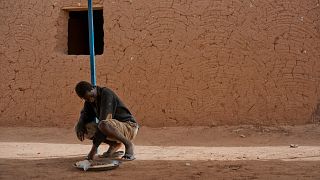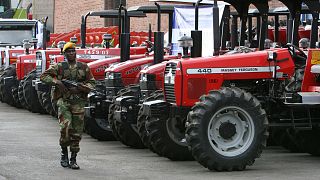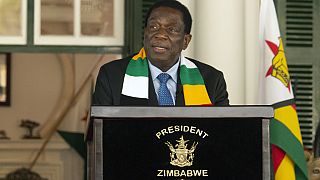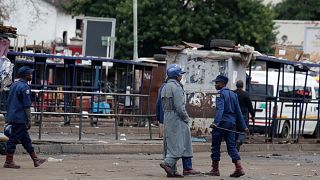Zimbabwe
Human Rights Watch says children and adults who work on Zimbabwe’s tobacco farms face serious risks to their health and labor abuses, calling on the government to take urgent steps to protect tobacco workers.
In a report released Thursday, the organization said child labor and other human rights abuses on tobacco farms in Zimbabwe tarnish the tobacco industry’s contributions to the nation’s economic growth and improved livelihoods.
The 105-page report, “A Bitter Harvest: Child Labor and Human Rights Abuses on Tobacco Farms in Zimbabwe,” reveals how children work in hazardous conditions, performing tasks that threaten their health and safety or interfere with their education.
The report said child workers are exposed to nicotine and toxic pesticides, and many suffer symptoms consistent with nicotine poisoning from handling tobacco leaves.
Human Rights Watch said it conducted research in the four provinces responsible for nearly all of Zimbabwe’s tobacco production.
The report is based on interviews with 125 small-scale tobacco farmers and hired workers, including children or former child workers, in late 2016 and early 2017. Human Rights Watch also analyzed laws and policies and reviewed other sources, including public health studies and government reports.
Human Rights Watch said it found that the government and companies have generally not provided workers with enough information, training, and equipment to protect themselves from nicotine poisoning and pesticide exposure.
It also said it found similar conditions on tobacco farms in research in other countries, including the United States. But where governments have enacted strong laws against child labor, and provided extensive information about hazards and how to provide protection, such as in Brazil, there has been some progress in keeping children out of the fields and protecting other workers.
President Emmerson Mnangagwa, who replaced Robert Mugabe in November 2017 following military intervention, stated that his administration’s economic policy would be based on agriculture. Zimbabwe is the world’s sixth-largest tobacco producer. The crop is the country’s most valuable export commodity, generating US$933 million in 2016.
Some of the world’s largest multinational tobacco companies purchase tobacco grown in Zimbabwe, either directly or at auction, including British American Tobacco, Japan Tobacco Group, and Imperial Brands. Under human rights norms, companies buying tobacco from Zimbabwe have a responsibility to ensure that their business operations do not contribute to child labor and other human rights abuses.
Human Rights Watch said it contacted the companies that collectively bought 86 percent of Zimbabwe’s tobacco in 2016. Most of the multinational companies involved have policies prohibiting their suppliers from using child labor and engaging in other human rights abuses, but Human Rights Watch’s findings suggest serious gaps in carrying out and monitoring these policies in Zimbabwe.
Tobacco companies should explicitly prohibit direct contact by children with tobacco in any form, conduct regular and rigorous human rights monitoring in the supply chain, and report transparently on their findings, Human Rights Watch said.












Go to video
Nigeria's market doctors bring healthcare directly to traders
Go to video
Nigerian Football Federation guilty of negligence in footballer's death
Go to video
Pics of the day: April 01, 2025
01:54
Uganda: the infiltration of plastics into agricultural fields and food raise concern
00:47
Malaria confirmed as cause of deadly outbreak in DRC
01:40
Newly elected IOC President Kirsty Coventry celebrated on return home to Zimbabwe